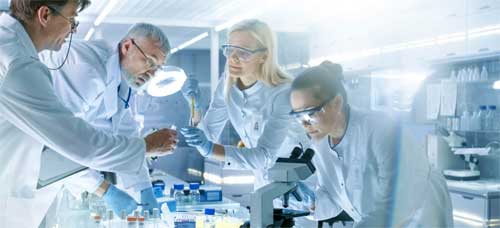|
Importance Of Physician Contribution To The Development Of
Medical Devices
Many relationships between physicians
and industry have led to life-saving innovations, such
as steerable cardiac catheters and certain artificial
heart valves. Physician innovators also developed the
first reliable pacemakers in the 1950s and 1960s, with
medical device makers later introducing additional
refinements.
Physicians can hold a unique position as innovators in
medical industry, particularly with medical devices. Use
of medical devices usually requires a high degree of
specialized knowledge and skill. Physicians on the
leading edge of medical knowledge may find it necessary
at first to build the tools they need, if those tools do
not yet exist. Perhaps for this reason, global device
manufacturers consider physician-researchers to hold a
central role in the industry and often pursue ideas from
the same physician-entrepreneurs over time.
Previous research has shown the various contributions
physicians make to medicine. For example, one study
showed that 57% of existing drugs’ new uses originated
through clinical practice, rather than research. Another
study showed that 80% of the scientific instrument
innovations users found most useful had originated from
other physician-users (rather than manufacturers
directly).
Physicians are an important source of medical device
innovation ICMR – DHR Policy Guidelines on Biomedical
Innovation and Entrepreneurship.
In Biomedical research, clinicians, medical
professionals and scientists play a key role in the
innovation cycle. Though the innovations from the
medical, dental, para-medical institutes may hold the
potential for their translation to socially relevant
products, for a successful commercialization, a medical
institute needs inputs from diverse areas of expertise.
Therefore, there is a necessity to develop a suitable
mechanism for promoting biomedical innovation and
entrepreneurship in Medical Institutes to foster
development of unmet need driven, socially impactful
technologies for societal benefit.
With an aim to promote innovation and entrepreneurship
at Medical, Dental, Para-Medical Institutes and allied
Biomedical Research and Academic Institutions, the
Indian Council of Medical Research (ICMR, Department of
Health Research (DHR), has brought out National Policy
Guidelines on Biomedical Innovation and
Entrepreneurship.
As per Dr Mansukh Mandaviya, Union Minister of Health
and Family Welfare “This policy document is envisaged to
promote Make-in-India, Start-Up-India and Atmanirbhar
Bharat initiatives of the Government of India. I hope
that the Make-in-India products developed by
inter-disciplinary group of doctors, biomedical
innovators and engineers by adoption of this policy will
benefit the poor and vulnerable groups in the country
and help in furtherance of sustainable development
goals.”
“It is time that India also demonstrates its strength
and mettle through research, entrepreneurship and
innovative initiatives in the health sector, including
medical devices. Under the leadership and guidance of
Hon’ble Prime Minister, India has taken several notable
steps towards self-reliance and selfsustenance,
especially in vaccine development during the pandemic
period. I am very hopeful that this Policy of DHR-ICMR
unveiled today will motivate, incentivise and give a
fillip to all the
stakeholders. It will ensure multi-disciplinary
collaboration, promote start-up culture and develop an
innovation led ecosystem at the medical institutes
across the country by promoting Make-in India,
Start-Up-India and Atmanirbhar Bharat initiatives of the
Government of India.”
As per Prof. Balram Bharagava, Secretary, DHR and
Director General, ICMR, “With 605 Medical
Colleges/Institutes and nearly 1 lakh doctors graduating
annually in the country, Indian Council
Physicians Are An Important Source Of Medical Device
Innovation

of Medical Research (ICMR) as the apex medical research
institution realized that there is a need to strongly
promote healthcare innovation and entrepreneurship at
Medical, Dental, Para-Medical Institutes/Colleges and
allied Biomedical Research and Academic Institutions by
creating a sustainable innovation ecosystem in the
country as the healthcare innovations and
entrepreneurship is making forays in the Indian economy.
A critical ingredient of a successful and sustainable
innovation ecosystem is to explore opportunities for
collaboration among the medical professionals,
healthcare organizations, academia, government and
industry. With immense knowledge and exposure to the
unmet healthcare needs, Medical Professionals,
Scientists and technologists should be at the forefront
of biomedical innovation.
It-resonates with the motto of our Hon'ble Prime
Minister to "Innovate, Patent, Produce and Prosper" by
promoting Make-in- India, Start-Up-India and Atmanirbhar
Bharat initiatives of the Government of India.
There is no IP and entrepreneurship policy in most of
the medical colleges as compared to engineering
colleges. Only 15 per cent medical colleges have laid
down IP policy as against 85 per cent of engineering
colleges. Medical institutes have contributed only 5 per
cent patent filings from 2010 to 2020. Rest was filed by
engineering institutes.
The policy’s vision is to create an innovation-led
entrepreneurial ecosystem in India with the ultimate
goal of positively impacting human health and
well-being. Its mission is to formulate an overarching
policy for creating nationwide innovation and
entrepreneurial framework at medical colleges,
hospitals, institutes for societal impact. |
